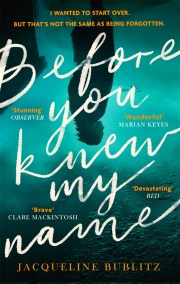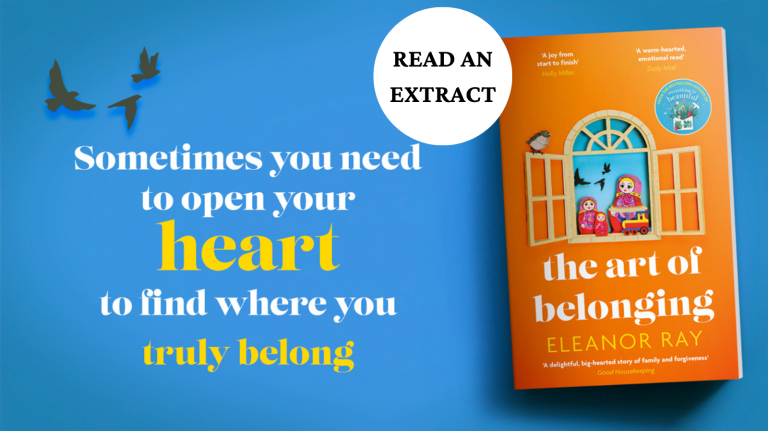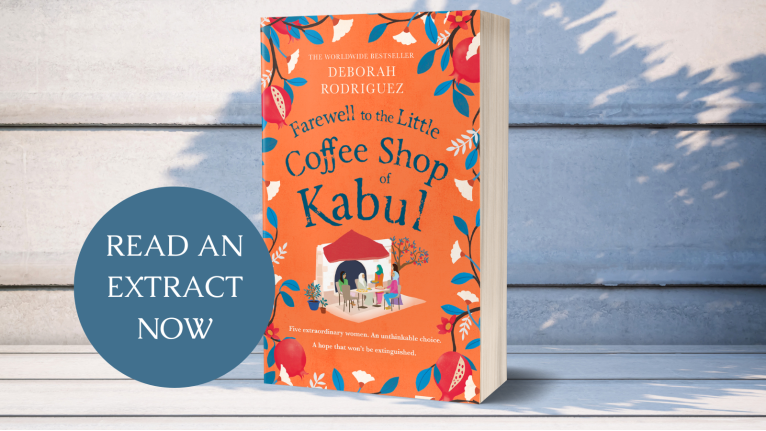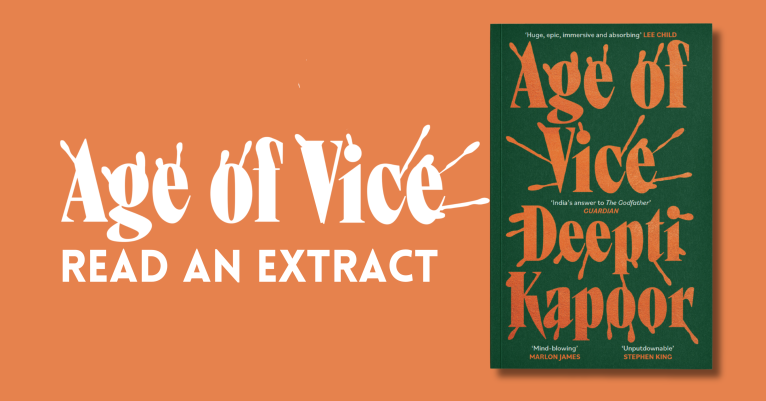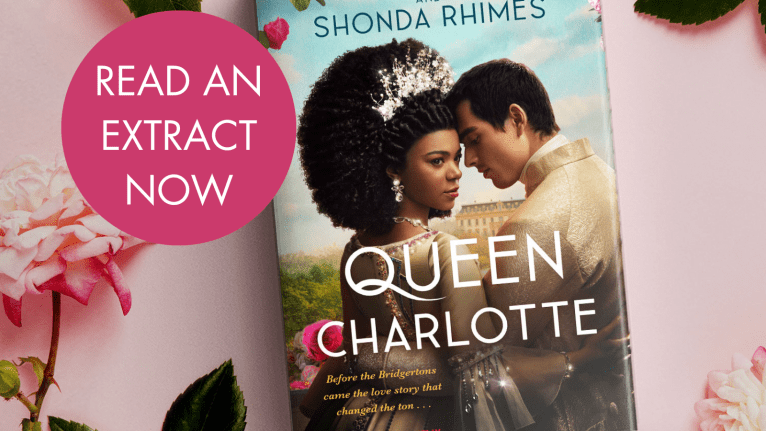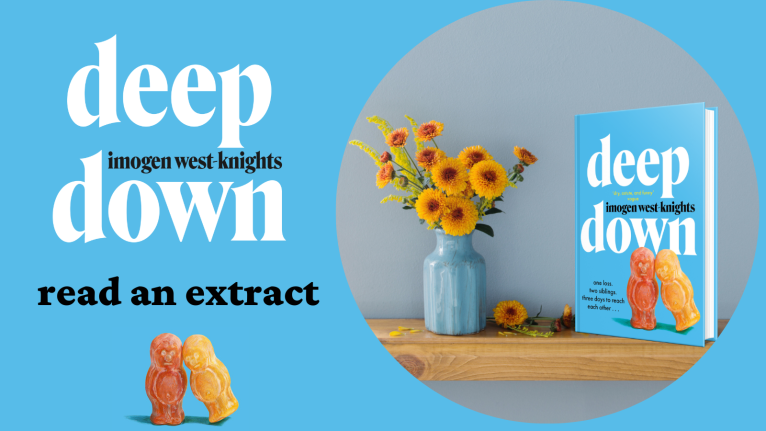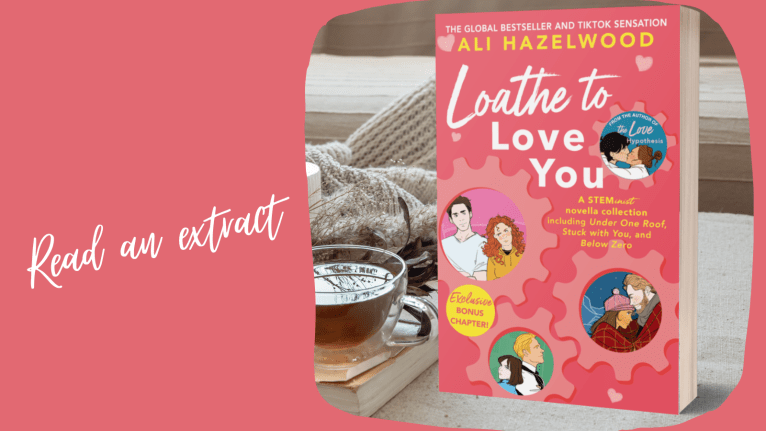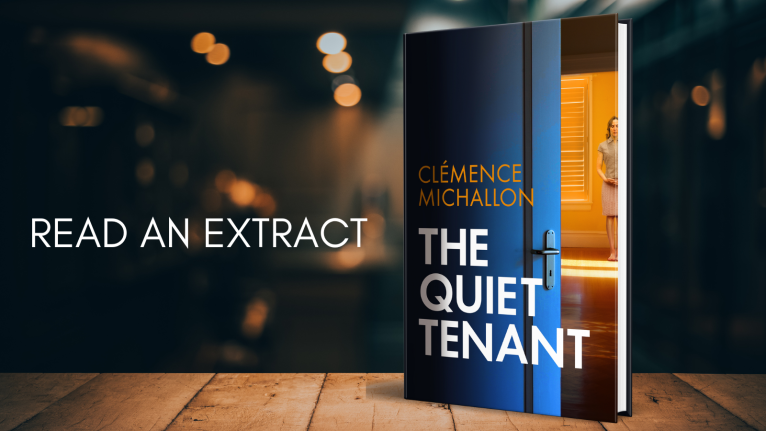Before You Knew My Name: Read an extract from Ruby
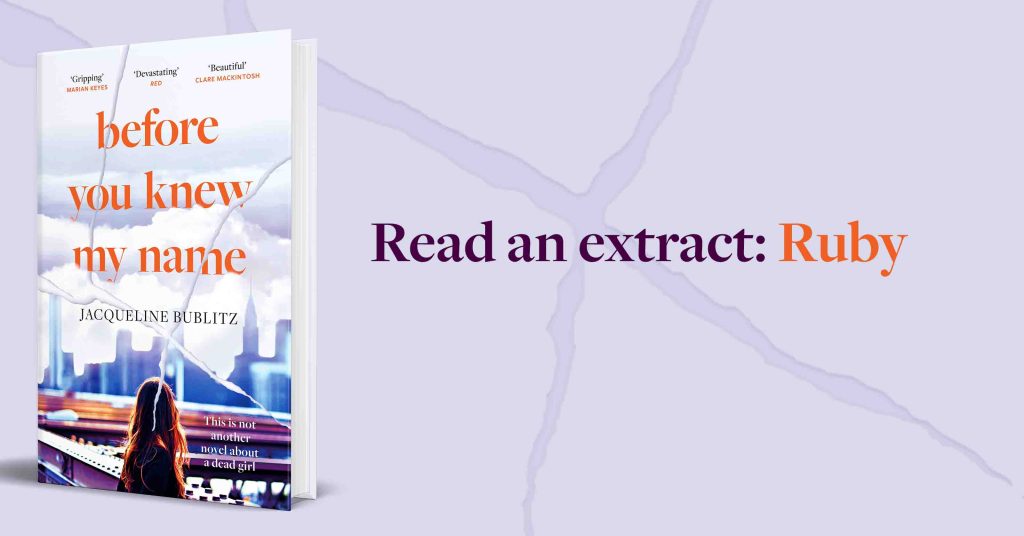
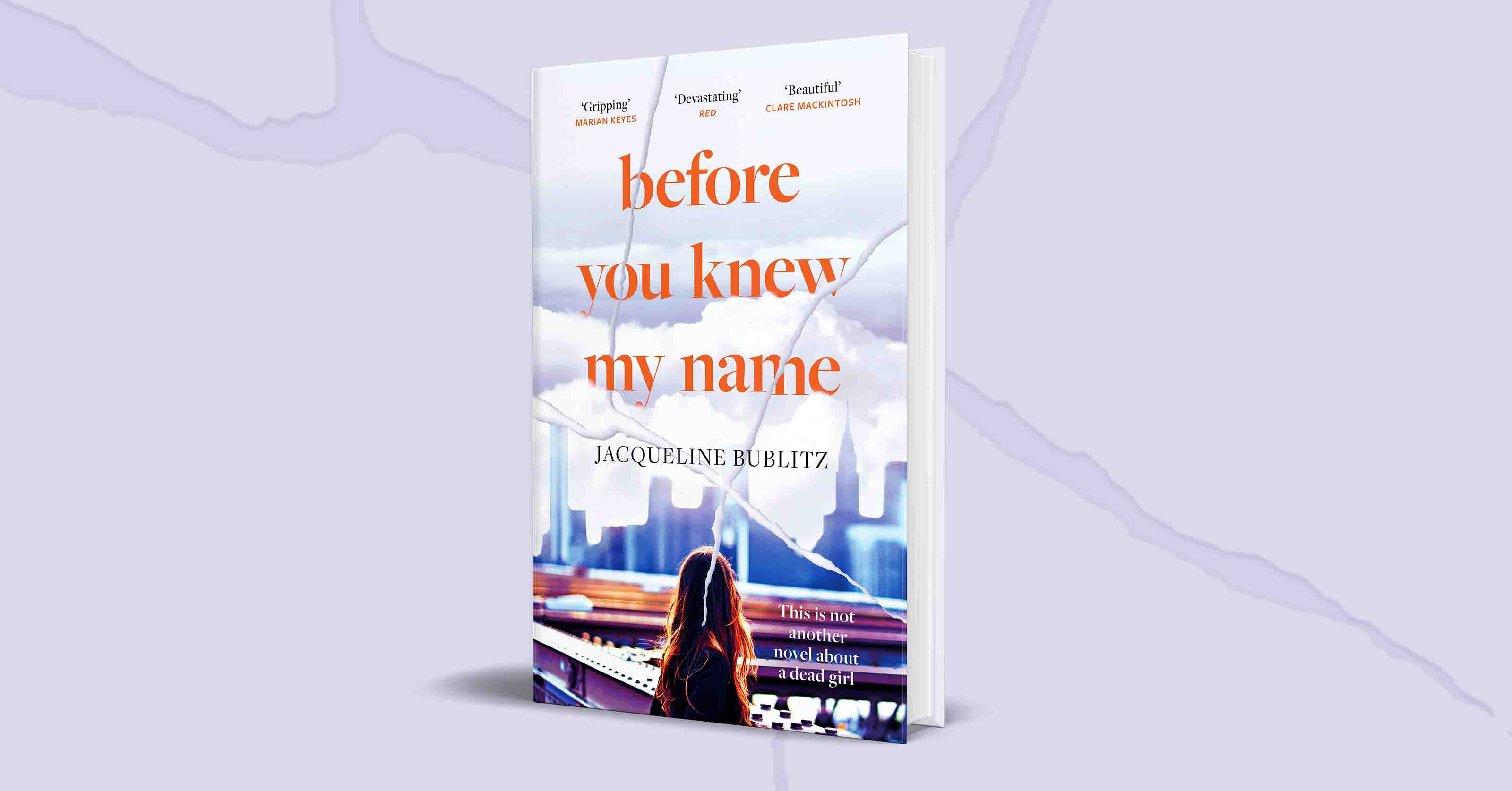
Before You Knew My Name is a startling, moving and uplifting novel about two women, Ruby and Alice, brought together in the most extreme of circumstances.
They were always going to meet. But it didn’t need to be like this.
Ruby
U Ok?
Ruby has been staring at her phone screen for twenty minutes. It is the first message she has received from Ash in three days. Three days. It’s been three whole days since she found Jane’s body. Jane. That’s what the media call the girl – me – now. Jane Doe, an unidentified white female found murdered in Riverside Park. Blonde. Thought to be aged between 15 and 24 years old. 5’5 tall, 125 pounds. A scatter of freckles across her nose. No identifying marks, no tattoos, and no major dental work done. She looks like
no one and everyone, and they have named her Jane.
The girl is now Jane.
Police say they are investigating every single tip phoned in. They hold press conferences, their faces like stone. Standing at podiums, they warn women to be careful, to avoid situations. News stories lead with vicious attack and brutal slaying; the growing consensus is that this was a random attack, which puts my murder on the tip of all the tongues up here where it happened, though the whole city is spooked. Who is she, people ask? And how could this have happened? Nobody young and pretty gets murdered in New York City these days. Correction: nobody young and pretty gets raped and murdered in New York City these days. Quotes from ‘police sources’ on the exact nature of the assault dominate the story in the tabloid papers. It makes Ruby feel sick to her stomach.
(Others delight in it. They crawl right into the muck.)
Is Ruby okay, then? No. Like I said, she has not chosen the easy path here. She could have let me go already, turned me over to the people whose job it is to think about me. Instead, her need to know who I am has come on like a fever; after her interview with Detective O’Byrne, she has stayed holed up inside her room, moving between the bed and the bathroom, as if taking a third or fourth shower might cool her down. It never does, so she crawls back under the sheets, half wet, stares at the ceiling, until she switches on her laptop again, goes back to her search for fresh headlines and threads of new information about the investigation. The city honks and buzzes outside her window, beyond her closed blinds there are millions of people going about their days and their nights, doing the things they always do, good or bad, or both, but Ruby wants to shut all that living out. Now that she feels closer to the dead.
Cassie says she should come home. Says she was right to question Ruby’s safety and the wisdom of her travelling alone.
Away from her laptop, there is only one safe place Ruby can think of.
The precinct is on a regular, residential street decorated with thin- trunked trees. Spears of metal make the first- floor windows of the street’s ornate row houses look like little jail cells, but for the most part, the location feels innocuous, homely, and Ruby would not have guessed there was a police station nestled in the neighbourhood. When she’d walked here for her formal interview, she’d followed the blue dot on her phone and was confused when she arrived, thinking: this is a street where people should be making dinner and playing with children, not investigating robberies and assaults and all the hidden, broken things. But then again, so much happens behind closed doors. Perhaps, she reasoned, it made sense for the police to slot themselves in amongst all that domesticity, amongst the kitchens and lounge rooms and curtains being closed around everyday life.
Best to keep the police close to home, maybe.
Seventy- two hours after my murder, on a grey- skied morning, Ruby finds herself returning to the precinct. She walks past the building a dozen times, but she never goes up to the entrance, cannot bring herself to do more than hover across the street. It is enough for her to stare at the front doors, to know there are people like Detective O’Byrne and Officer Jennings, that kind policeman, working away inside. Solving crimes, helping people, keeping them safe. Just a few days ago, she thought, This is how people go crazy. Now she understands she had no idea back then. What it means to need answers no one can give you.
Her body was found by a jogger. Such a famous line. Two anonymous women connected by just seven words. Just how close had they come to each other that morning? Close enough to change roles, play each other’s parts?
The victim is estimated to be in her mid- thirties. She is 5’7, 155 pounds. She has brown hair, and brown eyes. She has a tattoo of a heart on her right wrist.
Was Ruby’s life decided in the time it took to put on her running shoes? Had she arrived in the park just a few minutes earlier, might she have been the one in danger?
(How close do we all come?)
As she stands across from the precinct, Ruby thinks about Detective O’Byrne. By now, she has seen him many times on the news, read every single article about him she could find. It was no surprise to discover he is famous in his field, a respected, much decorated investigator known for solving many of the area’s high- profile cases. The grim stuff, the murders of women and children, cases Ruby skipped over at first, but often returns to in the dark, pressing her tongue against the exposed nerve of violence when she cannot sleep. She wonders how much more Detective O’Byrne knows about this particular murder than what has been shared with the public so far. A girl was assaulted, strangled. A seemingly random attack. The perpetrator’s DNA was found under the victim’s fingernails (and other places Ruby doesn’t like to think about). This is all common knowledge now. But what new secrets has the girl’s body offered up to the medical examiners and photographers and crime scene investigators? Three days on, obviously not enough to give away her identity. Posters with a detailed sketch at their centre have now gone up around Riverside:
Do you know this woman?
(A forensic artist has approximated my face, painted a small smile at my lips, coloured right up to the edges of me. It could almost . . . but the artist has softened my expression, widened my eyes. I look like a girl who knows nothing of the world. Who is going to recognise that?)
There must be more that he knows, Ruby thinks of O’Byrne, today. She can almost see him shifting all of the different pieces from hand to hand, rubbing the truth between his fingertips until it sparks. An odd image, and when she looks down, Ruby sees that she herself is pressing thumb to forefinger, a new and nervous twitch.
‘Does he know who you are, Jane?’
Ruby doesn’t mean to say this sentence out loud, but the words slip from her mouth, just as Officer Jennings quietly comes up beside her. She jumps, their faces mirroring surprise and recognition. He thinks Ruby looks nicer in the light, sexy even, then scolds himself for such an inappropriate thought. Smith sent him outside, said the Australian woman from the Riverside case had been standing out front of the building all morning, and he should probably go see if she was okay.
‘Ah . . . Ruby?’
She nods and ducks her head at the same time, embarrassed.
Jennings is looking at her with concern, and she remembers his softness down by the river. The way he breathed out slowly when she pointed to the body. Officer Smith had wrapped the blanket around her, squeezed her shoulders, but it was Jennings who looked like he wanted to cry.
‘Hi, Officer Jennings,’ Ruby says finally, willing the flush in her cheeks to settle. ‘I . . . ah, I was just walking past. And I was wondering if there have been any breakthroughs. Or, you know, leads. In the case.’
While she is talking, Jennings keeps glancing back at the precinct doors, his discomfort clear. He should have made Smith do this part. His partner is far better with the traumatised ones, she somehow knows what to say, how to find the balance between professional distance and small comfort. He clears his throat, wishing he’d paid more attention to how Smith does it.
Mistaking this unease for censure, Ruby’s blush deepens.
‘Sorry. I didn’t mean to be a bother. I shouldn’t even be here, and I know I have no right to ask questions. It’s just . . . I can’t seem to stop thinking about her. I’m going a bit crazy, I think.’
At this somewhat alarming admission, Jennings blinks through his nervousness, remembers something from his training, and takes a step closer.
‘It’s okay, Ruby. Did you want to come inside and talk? Maybe you remembered something? Detective O’Byrne is further uptown today, but I could . . . ’
He trails off as Ruby shakes her head, tears pooling, then spilling down her cheeks.
At the sight of her tears, Jennings reaches over and awkwardly pats Ruby’s arm, then coughs. His own cheeks are burning now. Will he ever get used to the crying?
(Think, Jennings, think.)
‘Um. Ruby, I can get you some phone numbers. There are people – experts in this kind of thing – who can help you. It’s pretty normal to feel upset after what you went through. Witnessing a crime can be traumatic, and lots of people say talking about it helps. So, you don’t, you know, get stuck.’
Mortified that she’s crying again, wanting nothing more than to get away from this awkward conversation as quickly as possible, Ruby nods at Jennings’ suggestion, wipes away her tears with the back of her hand. Giving himself a mental tick for getting it right this time, the young officer practically runs across the street, back to the emotional safety of the station. Returning a few minutes later, he hands Ruby three or four glossy pamphlets, and feels even better when she rewards him with a half- smile. The booklets he has picked for her all have covers showing a diverse cast of characters talking on the phone or walking together, holding hands. Everyone has a smile on their face, despite the words jumping off the paper. Trauma. Victims. Violence. Grief. Is this supposed to be her world, her people, now?
Ruby doesn’t feel like smiling.
Still, the young officer is clearly pleased with himself, and Ruby can only thank him for trying. I’ll have a read over these for sure. To make sure I don’t’ – she waves her hand about – ‘get stuck. I appreciate this, Officer Jennings. Really. Thank you.’
‘Don’t mention it, Ruby. You’ve been through a lot. It’s good to deal, right? And come by if you want to talk some more, okay. You’re welcome any time.’
(An odd closing. More to do with her smile than anything else. They both recognise this, and Jennings has the sense to start backing away.)
‘Officer Jennings!’
He has already crossed the street when Ruby yelps out his name, startling them both.
He stops.
Ruby takes a deep breath.
‘Where is she? Can you tell me where Jane is?’
‘Where Jane is?’ Jennings repeats her question, confused.
‘Yes. I mean, the girl. Jane Doe. Where do you take’ – Ruby swallows – ‘the bodies you find?’
‘Ah, right. I get you.’ Jennings wonders why he has suddenly started to perspire. ‘She’ll be down on 1st Avenue, I reckon.’
‘First Avenue?’
‘Yeah. At the morgue down there. That’s where she would be. They’ll be hoping to ID her. If no one comes forward to . . . ah . . . claim her, they’ll keep her down there for a while, most likely.’
‘And then?’
Ruby needs to know what happens if nobody claims the body.
Jennings rubs the back of his neck, feels a trickle of sweat under his fingertips. He hates thinking about this part. Never gets used to it. The idea of all those cadavers lined up, emptied of organs, lips sewn shut. That ugly ending doesn’t feel right for a girl as lovely as the one they found by the river. He feels a sudden desire to protect Ruby from what he knows. It’s the least he can do for her.
‘You know what, hon? Odds are we’ll find out who she is real soon. It nearly always happens that way, so don’t you worry about it.’
Jennings gives what he hopes is a reassuring smile, and then he is gone, the doors of the precinct closing behind his back, and Ruby is left standing on the street, smiling faces staring up at her from the brochures in her hand. She unfolds the top one, but the print blurs, because she is crying again, fat drops onto the page.
U Ok?
Ash couldn’t even be bothered typing out a full sentence.
What room did that leave her to answer? How could she fit in all the things that make her not okay?
She thinks again of the line she has read in so many newspaper reports: Her body was found by a jogger.
Why did they never say what happened to the jogger after that?
A GOOD HOUSEKEEPING BOOK OF THE YEAR
'Spellbinding' Elly Griffiths
'The most wonderful book. Unusual, beautiful, feminist, gripping, deserves to win prizes. I loved it so much.' Marian Keyes
'A brave and timely novel which will fuel the debate on women's rights to walk safely through our streets. I raced through the pages, anxious for resolution, yet at the same time not wanting this beautiful writing to finish.' Clare Mackintosh
This is not just another novel about a dead girl.
When she arrived in New York on her 18th birthday carrying nothing but $600 cash and a stolen camera, Alice was looking for a fresh start. Now, just one month later, she is the city's latest Jane Doe, an unidentified murder victim.
Ruby Jones is also trying to start over; she travelled halfway around the world only to find herself lonelier than ever. Until she finds Alice Lee's body by the Hudson River.
From this first, devastating encounter, the two women form an unbreakable bond. Alice is sure that Ruby is the key to solving the mystery of her life - and death. And Ruby - struggling to forget what she saw that morning - finds herself unable to let Alice go. Not until she is given the ending she deserves.
Before You Knew My Name doesn't ask whodunnit. Instead, this powerful, hopeful novel asks: Who was she? And what did she leave behind? The answers might surprise you.
'An exquisitely written, absolutely devastating novel, which gives a voice to all the women who never made it home.' Red
'I fell head over heels in love with this heartbreaking, beautiful and hugely important novel. Jacqueline Bublitz's prose is luminous and the up-all-night, just-one-more-page plot is brilliantly clever and original. Everyone should read this book.' Rosie Walsh, author of The Man Who Didn't Call
'A really remarkable book - so fresh and original. I've never read anything quite like this.' Laura Barnett, author of The Versions of Us
'I was mesmerised by this exquisitely written, heartbreaking, lyrical story of friendship from beyond the grave.' Jane Corry, author of My Husband's Wife

